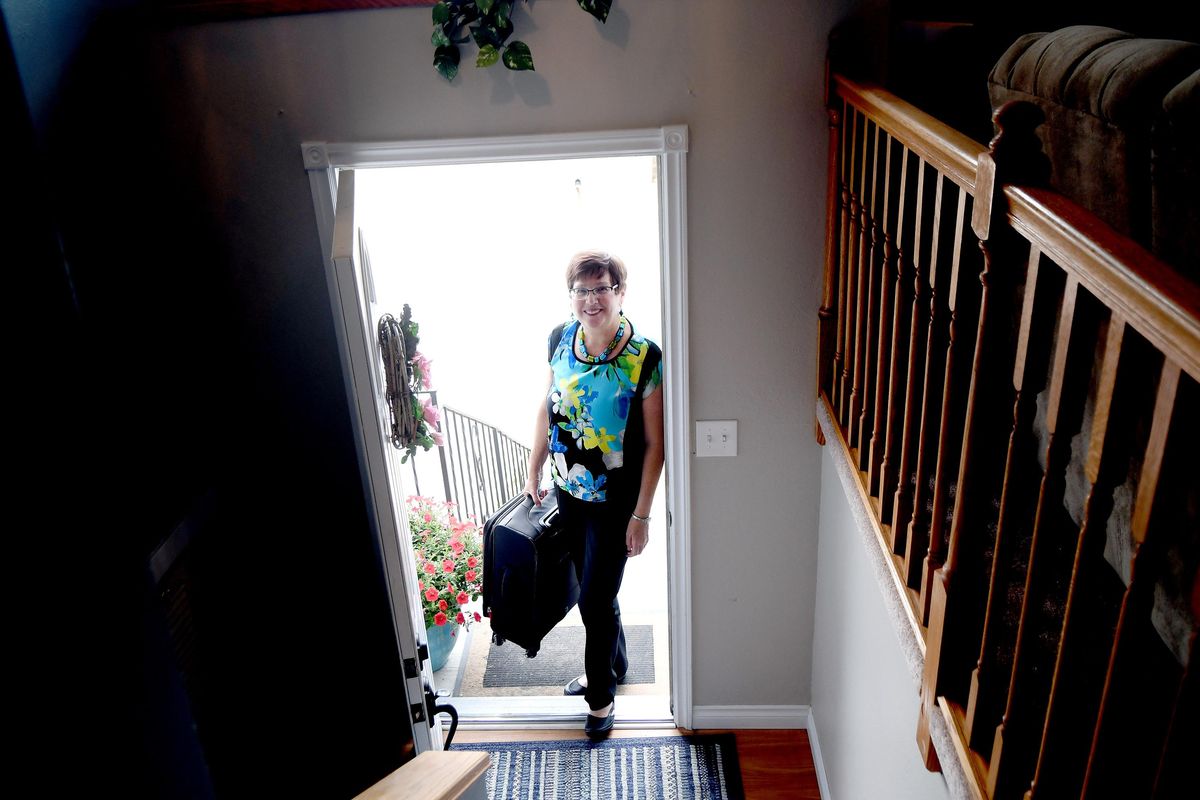Simplify screening: With some planning, travelers with health equipment can ease TSA check

Getting through airport security can be stressful enough. Add a colostomy bag or artificial joints, and you might get closer scrutiny.
But people with implants or devices can take steps to smooth screening woes by planning ahead.
Susie Leonard Weller, a frequent traveler who lives in Liberty Lake, doesn’t want to see people with such concerns avoid air travel.
For nearly 12 years, Weller has worn a colostomy pouch following colon cancer treatment and is co-facilitator of the Spokane Ostomy Support Group. The United Ostomy Associations of America works closely with TSA and other advocacy groups around security training and traveler tips.
“We have common goals supporting TSA screeners to do their job keeping people safe but also helping people with special medical needs that it’s done in a respectful way,” Weller said.
Her tips include using TSA’s PreCheck program if possible and a plan to inform TSA officers about any medical device or joint replacement at the start of screening.
Weller has gone on trips all over the U.S. and the world, from Denmark to Australia.
“Sometimes I just breeze through screening and nothing happens; other times a little alarm goes off, so I’m asked to step aside,” Weller said. “Sometimes they just ask for my hands, and they’ll screen them. Sometimes they will ask me to put my hand near my pouch.
“Rather than them putting their hands on me, I do kind of my own pat-down over my clothes in that more sensitive private area, and then they screen my hands.”
Additionally, people who have medical concerns can request a private screening and have a traveling companion be in the same area, she said. TSA lists that information on its medical conditions website.
When traveling, Weller said she brings an information card that lists her condition as a discreet way to tell TSA officers about her ostomy pouch. A pouch will show on the TSA’s imaging technology.
On its agency website, TSA offers a medical condition notification card to download and print for travel, or the agency’s website suggests carrying other medical documentation.
About 700,000 people in the U.S. live with a permanent ostomy, a surgery that creates an artificial opening for the elimination of bodily wastes. The waste is collected in bags or pouches. Typically, a pouch is held externally to the abdominal area with an adhesive skin barrier below the waist.
There are three kids of ostomies – colostomy (descending colon), ileostomy (ascending colon) and a urostomy (bladder). Some people need to wear two bags – one for urine and another for solid waste.
“TSA officers shouldn’t ask you to show your pouch,” Weller added. “You may be asked to rub over your pouch outside your clothing, so they can test your hand to rule out explosive residue. I think it’s true for other people with medical needs, that TSA wants to support them getting through security.”
She said it helps to know her rights and how TSA officers are trained for dealing with medical issues. If people have concerns, they can ask about a review by video tape of a security checkpoint, she said.
“I’ve been traveling for nearly 12 years and I’ve never had anyone treat me with disrespect,” Weller said.
“I think attitude makes a huge difference, that if people with special needs know their rights and what’s appropriate and inappropriate, they know it’s not they’re trying to be rude; they just don’t know because of lack of training.”
Weller’s husband has a hip replacement, and he often announces at the start of screening, she said.
“Most are out of titanium now, but if people have old ones that are metal, that might set off the alarm.
“You want to let people know that earlier on in the screening process, so they can do a pat-down or do some other kind of screening. That’s when having documentation of any medical issues is really helpful.”
She said as of the end of May this year, new policies for TSA PreCheck often mean less of a pat-down “because they figure you’ve already gone through some checking.”